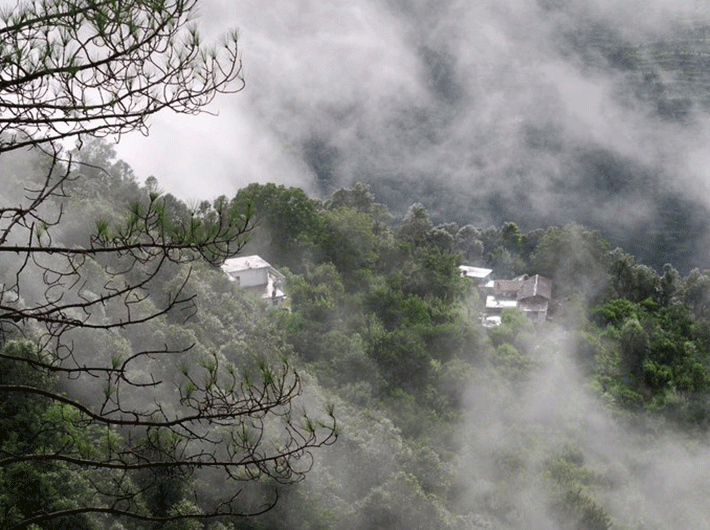Climate change is a complex problem, which, although environmental in nature, has consequences for all spheres of existence on our planet. It either impacts on-- or is impacted by-- global issues, including poverty, economic development, population growth, sustainable development and resource management. It is not surprising, then, that solutions come from all disciplines and fields of research and development.
At the very heart of the response to climate change, however, lies the need to reduce emissions. In 2010, governments agreed that emissions need to be reduced so that global temperature increases are limited to below 2 degrees Celsius.
Read more: Climate conference agenda: A difficult road to Paris
In 1992, countries joined an international treaty, the United Nations Framework Convention on Climate Change, to cooperatively consider what they could do to limit average global temperature increases and the resulting climate change, and to cope with whatever impacts were, by then, inevitable.
By 1995, countries realized that emission reductions provisions in the Convention were inadequate. They launched negotiations to strengthen the global response to climate change, and, two years later, adopted the Kyoto Protocol. The Kyoto Protocol legally binds developed countries to emission reduction targets. The Protocol’s first commitment period started in 2008 and ended in 2012. The second commitment period began on 1 January 2013 and will end in 2020.
There are now 195 Parties to the Convention and 192 Parties to the Kyoto Protocol. The UNFCCC secretariat supports all institutions involved in the international climate change negotiations, particularly the Conference of the Parties (COP), the Conference of the Parties serving as the meeting of the Parties (CMP), the subsidiary bodies (which advise the COP/CMP), and the COP/CMP Bureau (which deals mainly with procedural and organizational issues arising from the COP/CMP and also has technical functions). For a brief depiction of how these various bodies are related to one another.
The timeline:
2013 - Key decisions adopted at COP19/CMP9 include decisions on further advancing the Durban Platform, the Green Climate Fund and Long-Term Finance, the Warsaw Framework for REDD Plus and the Warsaw International Mechanism for Loss and Damage. More on the Warsaw Outcomes.
2012 - The Doha Amendment to the Kyoto Protocol is adopted by the CMP at CMP8. More on the Doha Amendment. Several decisions taken opening a gateway to greater ambition and action on all levels.
2011 — The Durban Platform for Enhanced Action drafted and accepted by the COP, at COP17.
2010 — Cancun Agreements drafted and largely accepted by the COP, at COP16.
2009 — Copenhagen Accord drafted at COP15 in Copenhagen. This was taken note of by the COP. Countries later submitted emissions reductions pledges or mitigation action pledges, all non-binding.
2007 — IPCC's Fourth Assessment Report released. Climate science entered into popular consciousness. At COP13, Parties agreed on the Bali Road Map, which charted the way towards a post-2012 outcome in two work streams: the AWG-KP, and another under the Convention, known as the Ad-Hoc Working Group on Long-Term Cooperative Action Under the Convention.
2005 — Entry into force of the Kyoto Protocol. The first Meeting of the Parties to the Kyoto Protocol (MOP 1) takes place in Montreal. In accordance with Kyoto Protocol requirements, Parties launched negotiations on the next phase of the KP under the Ad Hoc Working Group on Further Commitments for Annex I Parties under the Kyoto Protocol (AWG-KP). What was to become the Nairobi Work Programme on Adaptation (it would receive its name in 2006, one year later) is accepted and agreed on.
2001 — Release of IPCC's Third Assessment Report. Bonn Agreements adopted, based on the Buenos Aires Plan of Action of 1998. Marrakesh Accords adopted at COP7, detailing rules for implementation of Kyoto Protocol, setting up new funding and planning instruments for adaptation, and establishing a technology transfer framework.
1997 — Kyoto Protocol formally adopted in December at COP3. More about the Kyoto Protocol.
1996 — The UNFCCC Secretariat is set up to support action under the Convention.
1995 — The first Conference of the Parties (COP 1) takes place in Berlin.
1994 — UNFCCC enters into force. An introduction to the United Nations Framework Convention on Climate Change.
1992 — The INC adopts UNFCCC text. At the Earth Summit in Rio, the UNFCCC is opened for signature along with its sister Rio Conventions, UNCBD and UNCCD. More about the two other Rio Conventions: UNCBD and UNCCD.
1991 — First meeting of the Intergovernmental Negotiating Committee (INC) takes place.
1990 — IPCC's first assessment report released. IPCC and second World Climate Conference call for a global treaty on climate change. United Nations General Assembly negotiations on a framework convention begin.
1988 — The Intergovernmental Panel on Climate Change is set up.
1979 — The first World Climate Conference (WCC) takes place.
Further reading: Click here
